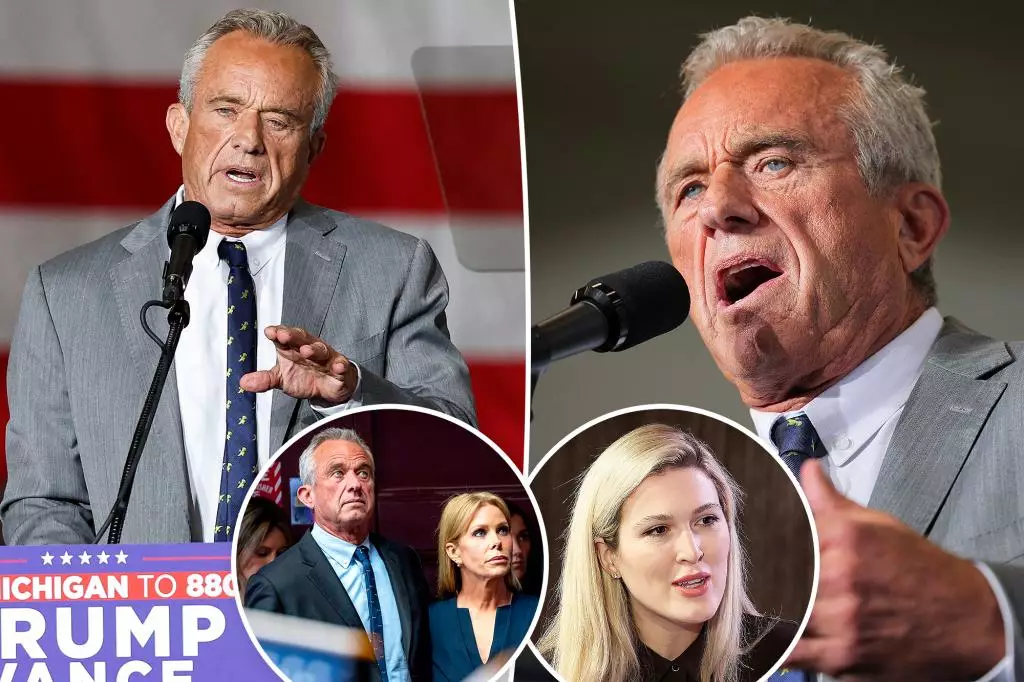Amid controversies surrounding personal indiscretions, the political landscape continues to evolve significantly. Robert F. Kennedy Jr., the scion of one of America’s most storied political families, made headlines not only for his alleged involvement in a sexting scandal with New York Magazine writer Olivia Nuzzi but also for his compelling stances on health and nutrition. This article explores the dynamic interplay between personal controversies and public advocacy, with a focus on Kennedy’s recent appearances and statements.
In the wake of revelations regarding his personal life, Robert F. Kennedy Jr. attended a Senate roundtable on nutrition, where he supposedly maintained an admirable demeanor despite the swirling rumors. Extracts from this event, hosted by Senator Ron Johnson, featured a panel of prominent figures advocating for a reassessment of American health standards. Among them were nutritionist Jillian Michaels, psychologist Dr. Jordan B. Peterson, and various other health advocates. While one might expect a figure in Kennedy’s position to show visible signs of distress, spies noted that he “seemed great” at the event, showcasing a resilience often required by public figures facing scandal.
Kennedy’s public appearances underscore a notable tension: the coexistence of an individual’s personal life with their professional advocacy. This duality is common in politics, where personal scandals can lead to both public scrutiny and opportunities for discussion on pertinent issues.
Despite his tumultuous personal landscape, Kennedy’s consistent critiques of corporate influence on health and nutrition are drawing attention. Following the event, he reiterated his longstanding opposition to ultra-processed foods and toxic chemicals, diagnosing them as the fundamental causes of deteriorating public health in the United States. This stark view posits a broader narrative about the American food system and regulatory shortcomings, further establishing him as a controversial yet compelling voice in health advocacy.
Kennedy recently commented on the historical context of obesity, linking it to a bygone era when it was considered exceedingly rare. His historical analogies draw upon the emotional resonance of health-related issues, aiming to engage a public that may feel overwhelmed by contemporary health crises. This rhetoric reflects a strategy frequently employed by public figures to relate their personal narratives or stances to broader societal themes, aiming to evoke a sense of urgency or empathy.
Additionally, Kennedy’s political maneuvering has not gone unnoticed. After suspending his presidential campaign, he expressed the desire for a political environment that prioritizes health. His endorsement of Donald Trump signaled an alignment with certain anti-establishment sentiments, focusing on the need for a president committed to restoring health standards. This alignment raises questions about the future of political endorsements in a landscape marked by skepticism towards governmental institutions.
Kennedy’s claims regarding the corruption of regulatory bodies such as the USDA and FDA reveal a larger narrative surrounding trust in government—a topic that resonates deeply in today’s political climate. By framing the conversation around distrust in food safety regulations, Kennedy taps into the zeitgeist of anti-establishment rebellion, positioning himself as not only a figure of health advocacy but also a champion of transparency and reform in government.
The intricate relationship between Robert F. Kennedy Jr.’s personal controversies and his public advocacy serves as a compelling case study in contemporary politics. His ability to navigate personal challenges while championing critical health issues illustrates the complexities faced by public figures in securing their legacies amidst scandals. As discussions surrounding health, corporate regulation, and personal integrity continue to unfold, Kennedy’s actions may shape perceptions of both himself and broader institutional trust.
Ultimately, the juxtaposition of his advocacy work and personal controversies invites critical examination of the motivations guiding public figures today. Whether viewed as a beacon of health reform or a symbol of political misalignment, Kennedy’s story underscores the intertwined nature of personal and public spheres in modern political discourse.

